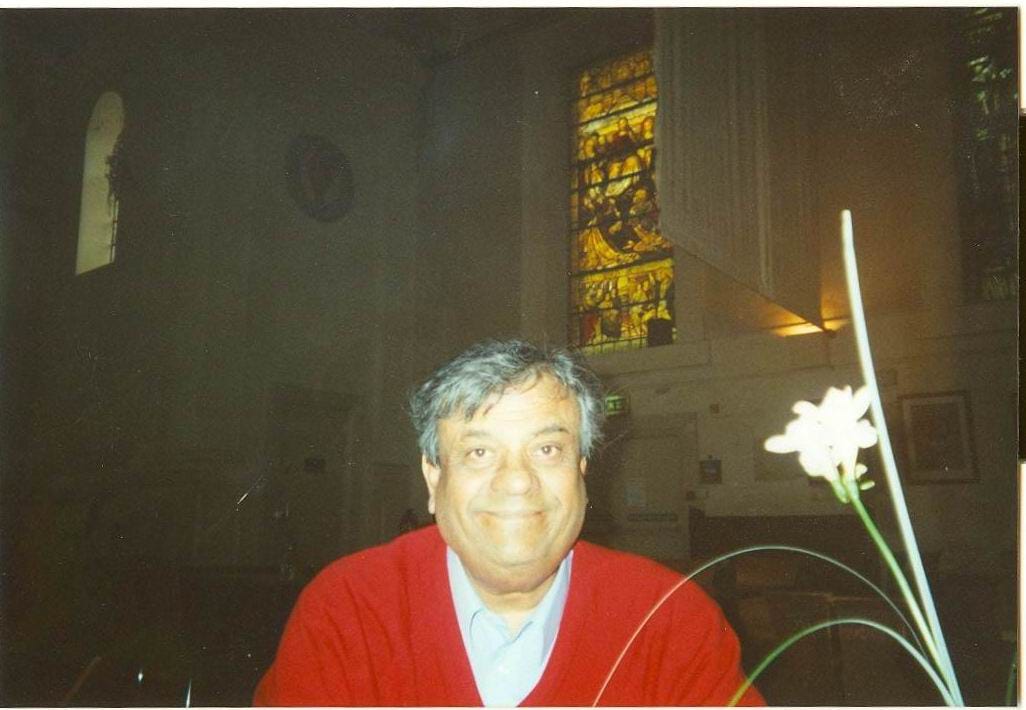At just 20 years old, British writer Suchandrika Chakrabarti had lost both of her parents, leaving her and her older brother to sell their childhood home and move what remained of the family’s belongings into a storage unit. Here, Chakrabarti shares the path she took from holding on to letting go of her parents’ things, and where some of those cherished objects actually ended up.
My parents had both died by my 20th birthday: my mom when I was 16, and my dad when I was 19. Apart from the more obviously painful consequences, these events led to my older brother and me having to sell our childhood home in Hornchurch, a district at the very northeastern edge of London, England. I was 23 by the time this was completed, in 2006. We had gone from being a family of four to just two lost and confused people, in three short years.
There’s a tendency in early grief to hold on to your loved one’s personal things, as though that keeps them present in the world somehow. If you’ve lost someone you love, you know about this kind of magical thinking. In my early- to mid-twenties, a storage unit was the closest thing I had to a family home, as that’s where the detritus of my childhood was kept. Without loving eyes to watch over it, though, it was less a home and more a library of my family’s history. I visited often.
Over the last two decades since I first learned about grief, I’ve grown to understand that objects lose their meaning. If I can locate my parents anywhere in my atheist view of the world, they’re in the stories I’ve built around them, the memories I carry within me and in the very specific ways I catch a glimpse of them in my features. I already had my father’s eyes, but these days I see more of his face in mine. I’ve emailed myself quotes I’ve loved over the years, a 21st-century update of the notebooks that my mother filled with her favorite lines of literature. I think that’s what the grieving process does: transforms the person you’ve lost from being separate from you, to being a part of you. That’s why it’s a long and painful process.
The author’s mother’s notebook, where she’d write down her favorite literary lines
We don’t lease a storage unit anymore. It was emptied out two years ago. Here’s what happened to the most important things:
My father’s red jumper that I bought him one Christmas and he wore all the time: given to a charity shop
Family photo albums and other keepsakes: at my brother’s house in Bristol (a city on the west coast of England, about 90 minutes from London)
My mother’s saris: vacuum-packed and boxed-up, in a hallway cupboard in my flat
Essays from my last years of high school and college: binned, because they needed to go
Books: in my living room, on a set of shelves I’ve had since I was a child
My school photos: filed away with my passport and useful paperwork, because they have to be kept safely

The author and her mother in the early ‘90s
Is it a coincidence that I rediscovered my creative energy when I finally let go of this sad version of home? I had always known I wanted to write for a living in some way, and my parents heartily supported that ambition. After their deaths, I basically experienced writer’s block for about 15 years. While my brother and I emptied the storage unit, I was making my first podcast; since that time, I’ve gone freelance, and written more in 18 months than I have in my whole adult life. I’ve written about some of the most painful, lonely, shameful (or so I once thought) moments of my life, and felt better for it, stronger. I’ve received messages from readers telling me that my writing has helped them through their own losses. I’ve realized that I’m not alone.
The things your loved one leaves behind might be essential to your grieving process at the beginning, but you have to keep reassessing. Have the things started weighing you down? Do you have space for them? When you think of them, is it less with pain, and more with contentment?
“You see, your loss has added multiple inner worlds and you live in them simultaneously,” says counselor and author Christina Rasmussen.
“We are no longer living in a linear way. You jump outside of time and space a hundred times a day after loss.
You go in your memories.
Then you go into all the possible futures.
Then you come back in your present.
And you do all of this fast.”
Remember how quickly your mind could go off like this when you first knew grief? It made you feel mad, or anxious, or scared. Your loved one’s belongings would set you off, but also bring you back, anchoring you. With time, you start to make sense of the absence. Once that happens, swimming in the past becomes safer, because you learn how to throw down your own anchor. Your memories are better than things, anyway. They’re the greatest gifts our imaginations can give us.

The author’s father wearing his red jumper on her 19th birthday in 2002
More about the author: Suchandrika Chakrabarti is a freelance journalist and podcaster based in London, England. She makes Freelance Pod, which is about how the internet has changed news and creative jobs. You can find her on Twitter and Instagram; if you do, tell her to get offline and write that book.
If you liked this newsletter, please subscribe and share!
Follow me on:
You are not alone!




